Faith in a crisis; prayer as resistance
On Gandhi Jayanti, a Call for Peace at Brooklyn’s Yom Kippur Vigil.
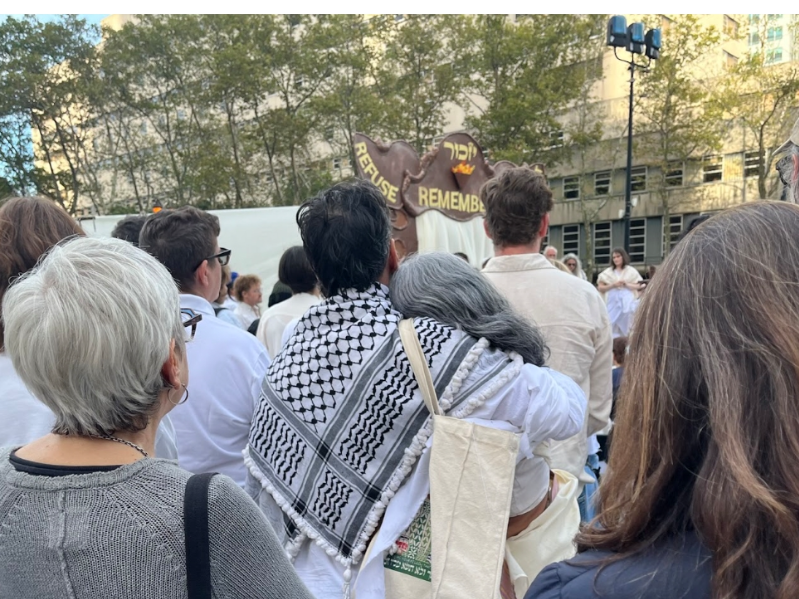 1500 Jews of conscience and allies gathered in front of Brooklyn Borough Hall for a “Remember, Refuse, Recommit” for a Yom Kippur Yizcor (May God remember) service. / Sunita Viswanath
1500 Jews of conscience and allies gathered in front of Brooklyn Borough Hall for a “Remember, Refuse, Recommit” for a Yom Kippur Yizcor (May God remember) service. / Sunita Viswanath
Oct. 2 was a constellation of auspicious occasions: Gandhi Jayanti, the day we honor Gandhiji and his commitment to non-violence; Vijayadashimi, the day Hindus celebrate the culmination of a festive period devoted to Shakti, the divine power that conquers negative forces and keeps us safe; and Yom Kippur, a day of deep religious significance for Jews, when the community engages in deep self-reflection and atonement, as well as mourning.
I participated in Rabbis for Ceasefire’s public Yom Kippur service in Brooklyn, NY. 1500 Jews of conscience and allies gathered in front of Brooklyn Borough Hall for a “Remember, Refuse, Recommit” for a Yom Kippur Yizcor (May God remember) service. Rabbis and local elected officials shared their messages and prayers for an end to the genocide in Gaza, and the increasing anti-semitism we are seeing all around the world, most recently in the attack on a syanagogue in Manchetser, UK.
It was a collective worship ritual of grief and mourning. Those gathered sang traditional songs, wailed out our grief for the more than 65,000 dead in Gaza, the remaining Israel hostages abandoned by the Israeli government, and the immigrant, trans and other marginalized communities facing the brunt of this country’s cruel government, tore a large white sheet of cloth that wove among us all, a visceral action expressing the brutal severance that occurs when someone dear to us passes away, and prostrated on the floor to atone for our collective sins over the past year.
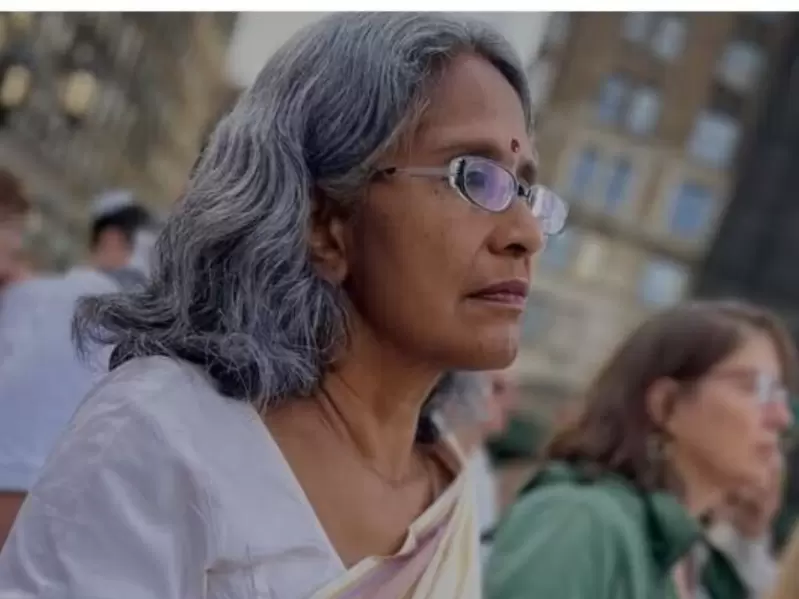 Sunita Viswanath at Rabbis for Ceasefire’s public Yom Kippur service in Brooklyn, NY.. / Sunita Viswanath
Sunita Viswanath at Rabbis for Ceasefire’s public Yom Kippur service in Brooklyn, NY.. / Sunita ViswanathWhen the service came to an end, there was a procession through the streets led by the Rabbis. My Jewish husband and I were among those who carried the banner at the front – a banner that looked like a giant Torah scroll, and said Not Another Bomb. The entrance to the Brooklyn Bridge was blocked with a moving prayer service and protest for about two hours. My husband and I were among the approximately 60 people who sat in civil disobedience and took arrest.
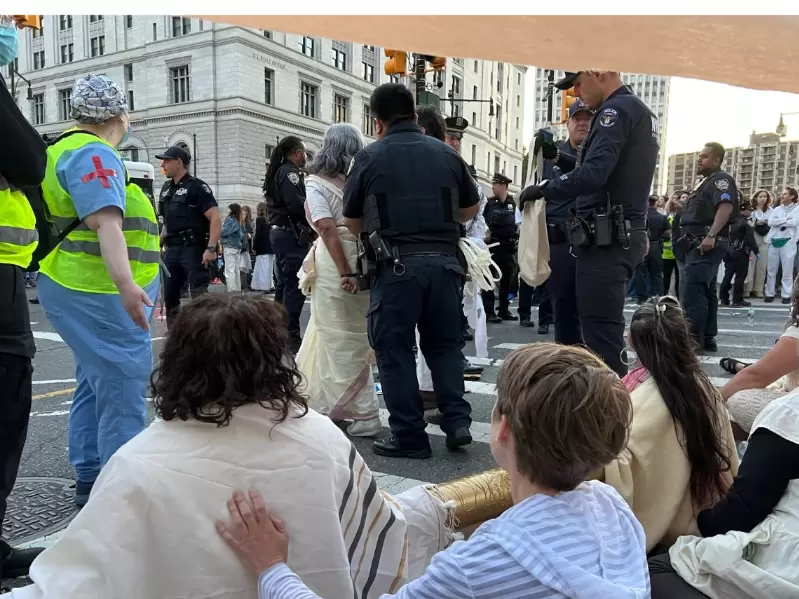 Acitivst Sunita Viswanath being handcuffed. / Sunita Viswanath
Acitivst Sunita Viswanath being handcuffed. / Sunita Viswanath
When our money and arms continue to starve and bomb little children and entire families in Gaza, I cannot contain my grief and rage. When Gandhi Jayanti and Vijayadashimi fall on Yom Kippur, my heart cannot fathom how far we are from the true significance of these days. Ritual has always been a way for humans not only to cope with blessings and hardships, but to gather strength, to reintegrate, and to remind ourselves of our collective purpose. Sitting in ritual prayer – wailing, tearing, prostrating, singing – helped my heart cope with the enormity of the loss all around. Sitting in civil disobedience, holding hands with siblings and refusing to move, and taking arrest: this connects me to my legacy as both an Indian and an American since nonviolent civil disobedience was such an important part of both countries' histories of resistance.
During the service, Rabbi Abraham Joshua Heschel was quoted: "Prayer is meaningless unless it is subversive, unless it seeks to overthrow and to ruin the pyramids of callousness, hatred, opportunism, falsehoods."
Heschel’s warning resonates across centuries. Long before him, the 15th-century Indian saint Kabir expressed a similar truth:
"Ram! Ram!" they cry,
till there's a callus on their tongue. (r. 33)
If saying Ram gave liberation,
saying candy made your mouth sweet,
saying fire burned your feet,
saying water quenched your thirst,
saying food banished hunger,
the whole world would be free. (From Bijak of Kabir, Translated by Dr. Linda Hess)
As we prayed and processed, I couldn’t stop thinking about the countless prayers and pujas and garba dances for Maa Durga all around the world during these past two weeks of Navratri. I was heartened to see that there were Durga Puja pandals in Kolkata devoted to Palestine. But for the most part, our festivities were severed from the crises of our times. We meditate each day during Navratri on a different aspect of the Goddess so that we may honor those aspects within ourselves: kind, nurturing, protective, maternal; and fierce, fearsome, warring against evil. Our dance is the “thandavam” of Shiva-Shakti by which all of the universe is created, preserved, destroyed and regenerated, and our trance is the trance of being lost in communion with the Divine. I ask you: how can we practice these ancient rituals without feeling their power in our very beings? How can we talk about Shakti without insisting on Justice?
Yaa Devi Sarva Bhuteshu
Shakti Rupena Sansthatha
Namasthasye Namasthasye
Namasthasye Namo Namaha
I long for the day when Hindus of conscience gather in the streets, turning prayer into action and action into prayer. To seek shanti, nyaya, and lokasangraha is to walk in step with Shakti herself—fierce, tender, eternal. Each gesture of courage brings us closer to that day, like a mantra repeated until it reshapes the heart. As Heschel reminded us, prayer must be subversive, and as Kabir warned, words without justice are hollow. Gandhi too showed us that nonviolence is not passive but a force of truth in action. That day will not come on its own, but each act of courage and faith brings it nearer.
Sunita Viswanath is the Executive Director of Hindus for Human Rights and a lifelong advocate for women’s rights and human rights.
(The views and opinions expressed in this article are those of the author and do not necessarily reflect the official policy or position of New India Abroad)
ADVERTISEMENT
ADVERTISEMENT
E Paper
Video




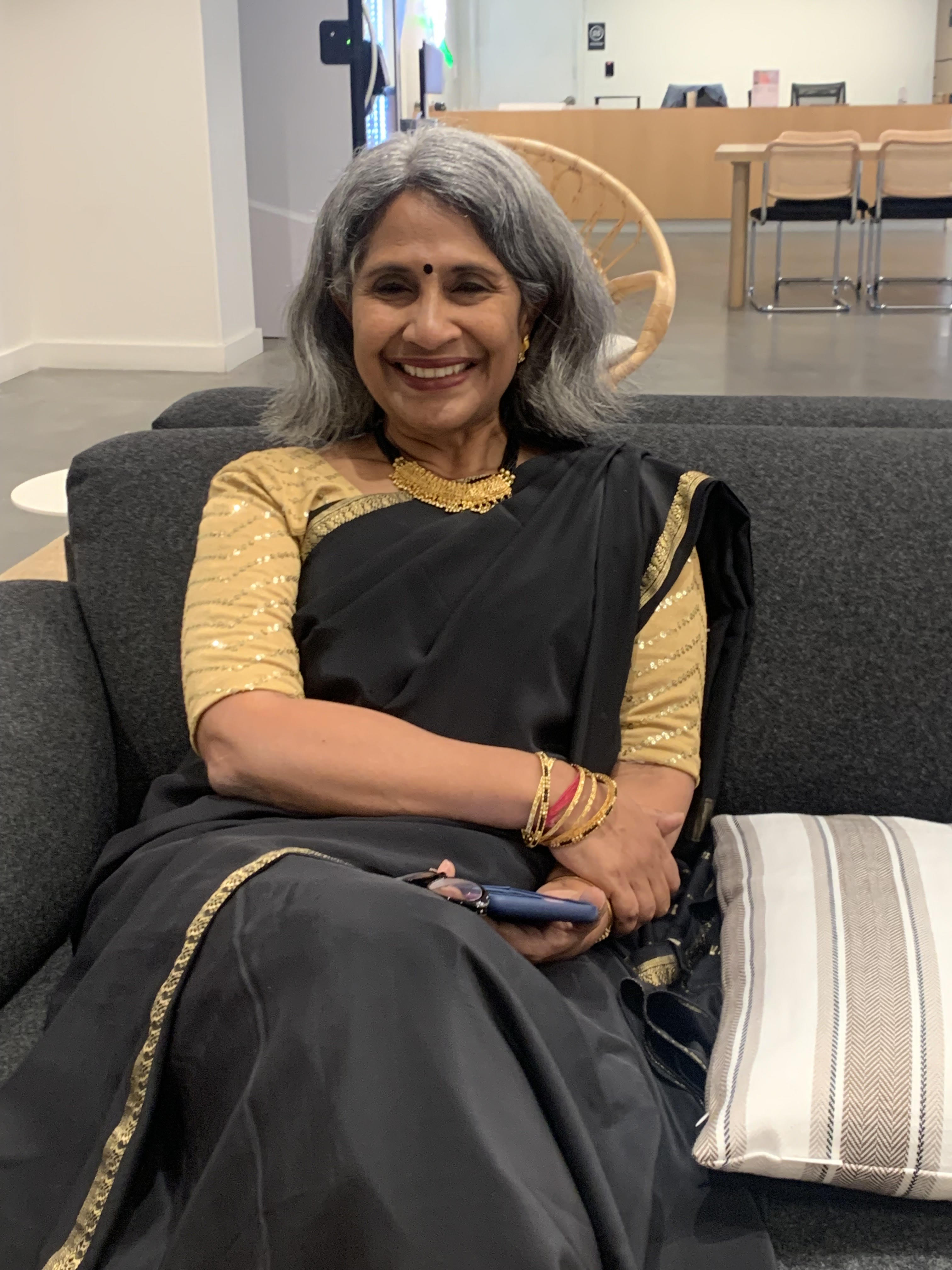 Sunita Viswanath
Sunita Viswanath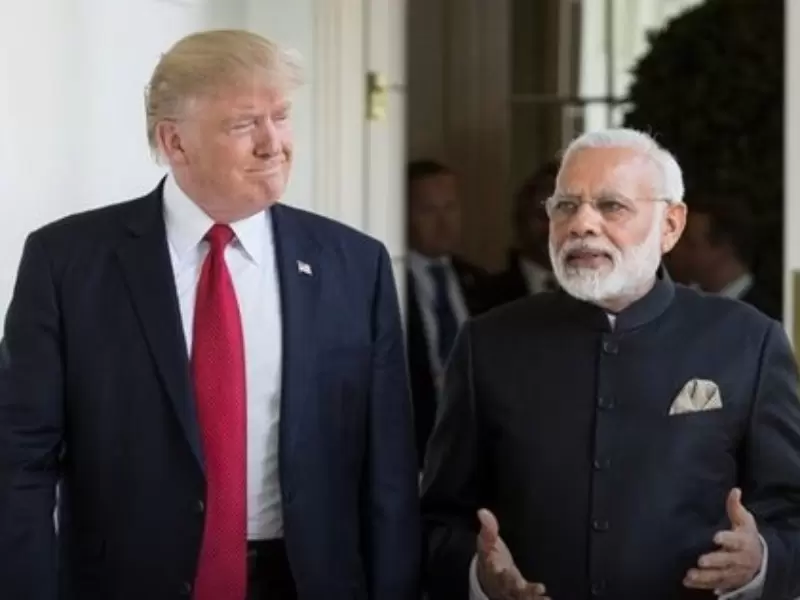
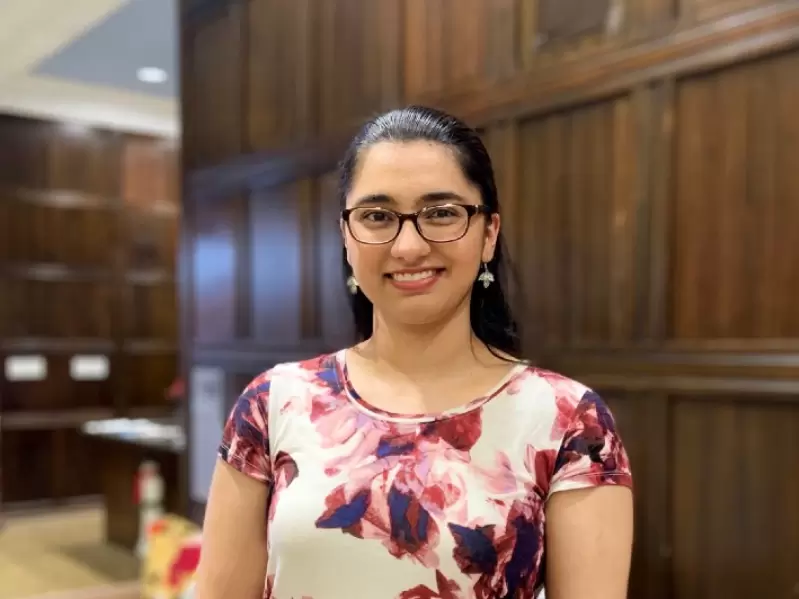
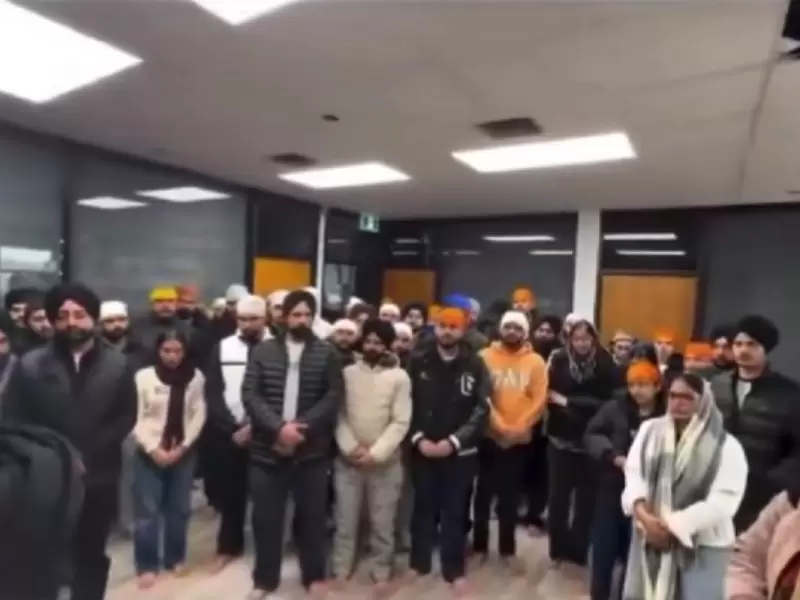

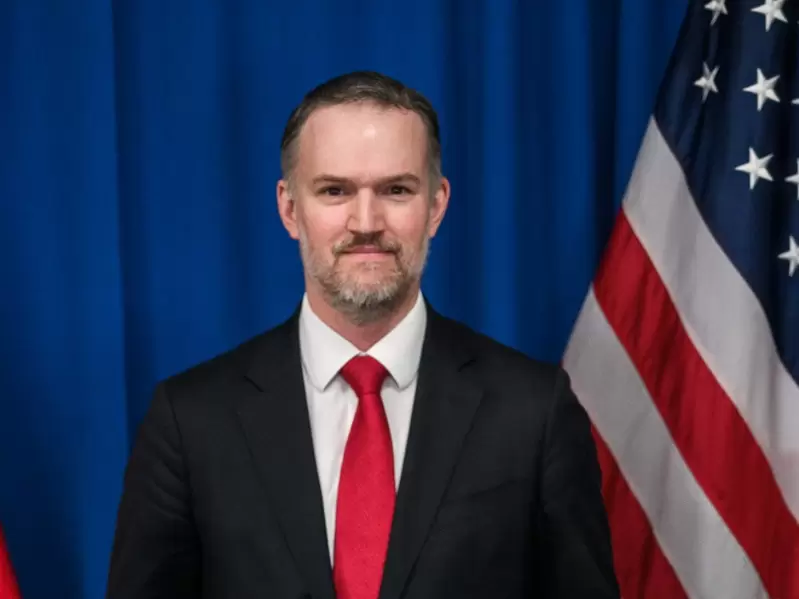
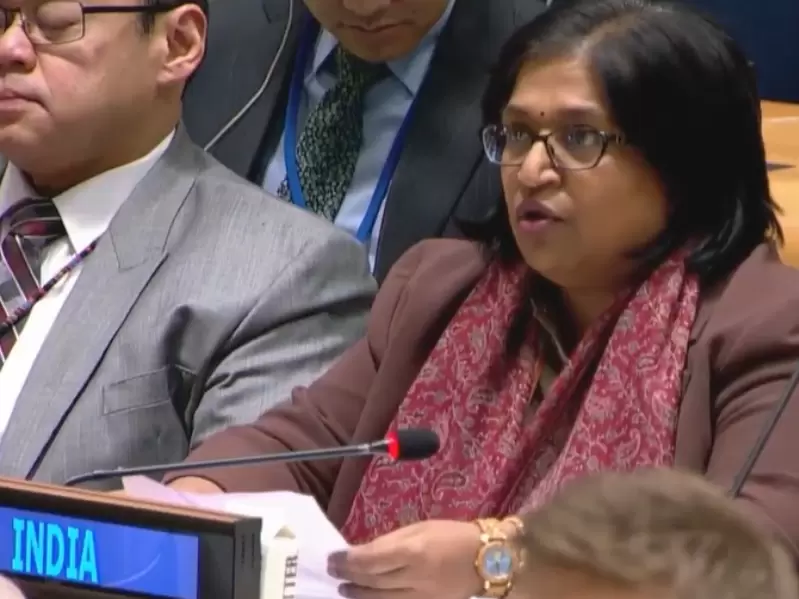
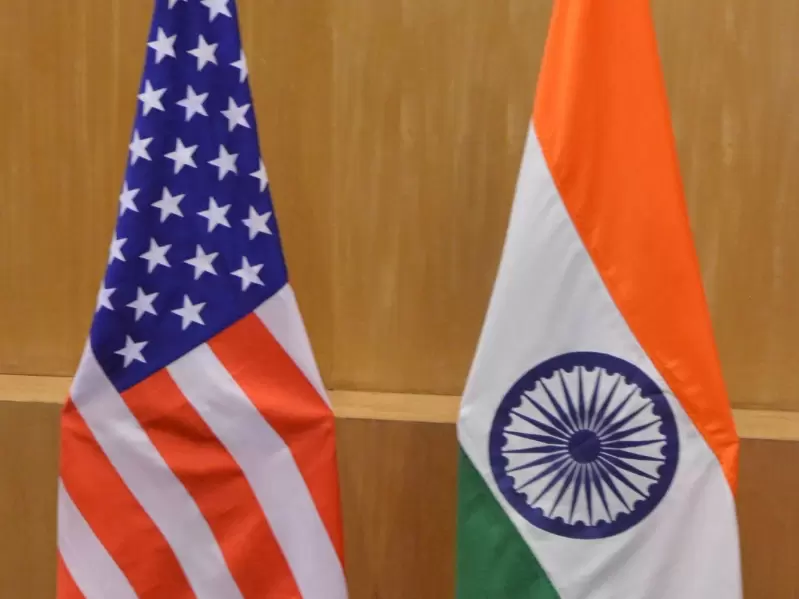
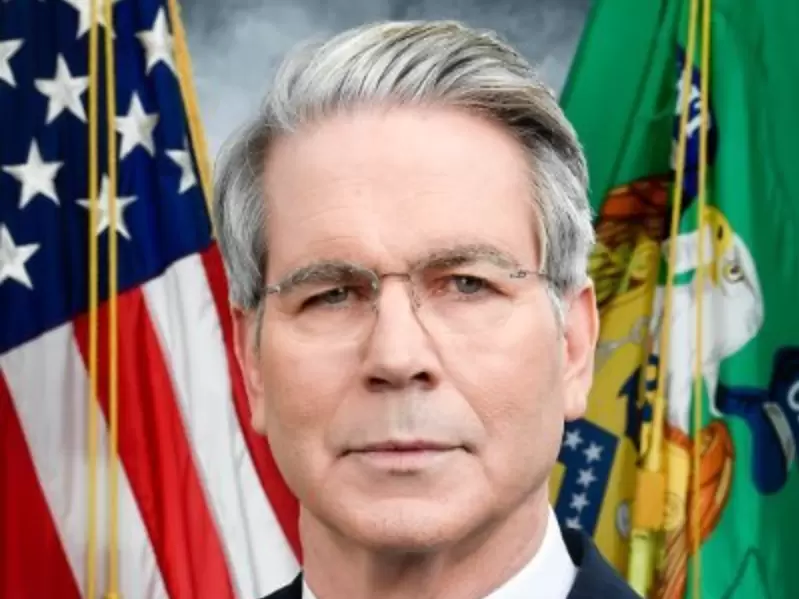
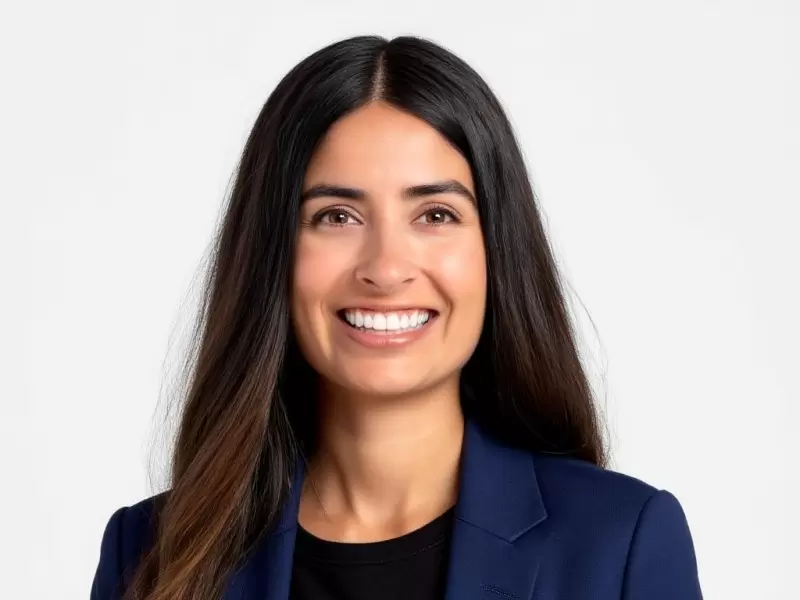
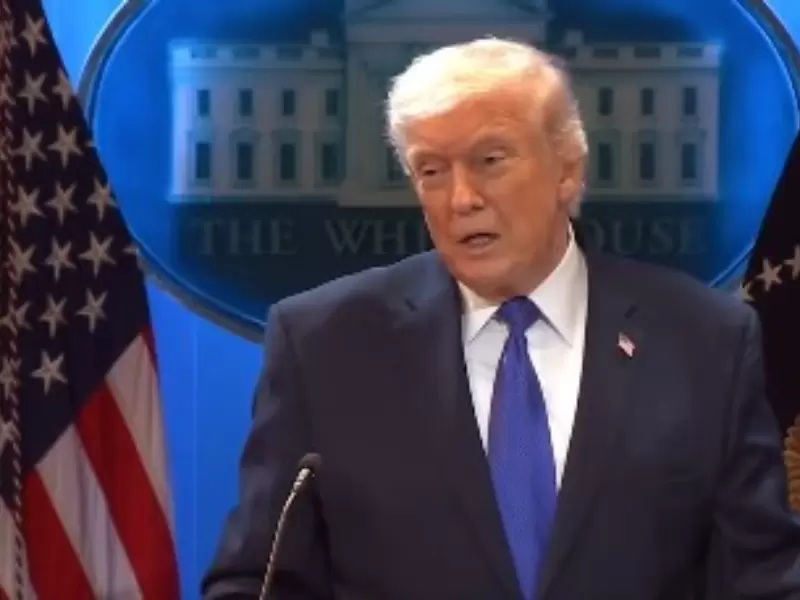
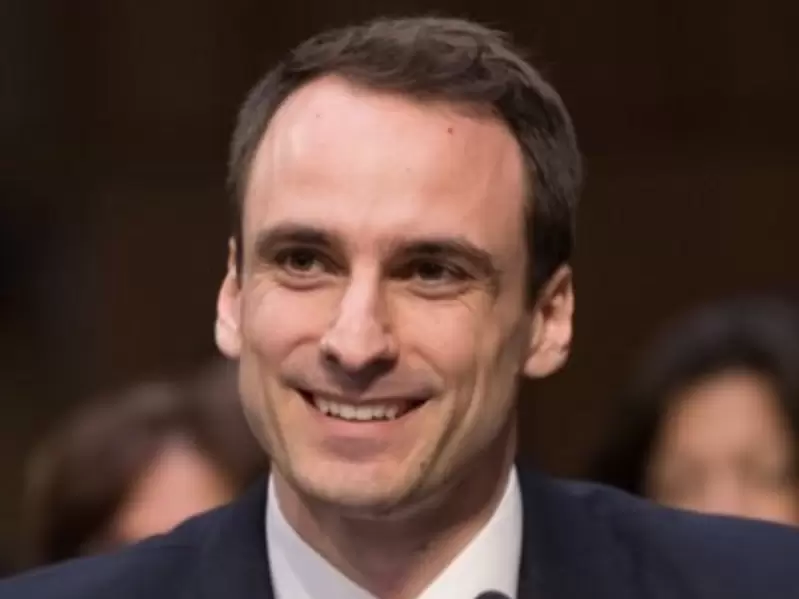
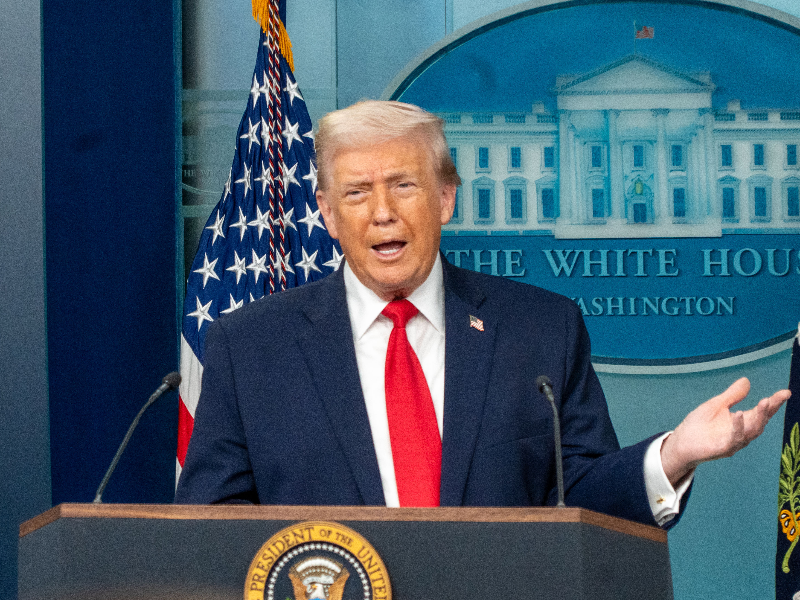


Comments
Start the conversation
Become a member of New India Abroad to start commenting.
Sign Up Now
Already have an account? Login